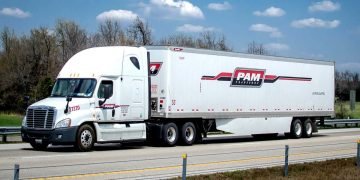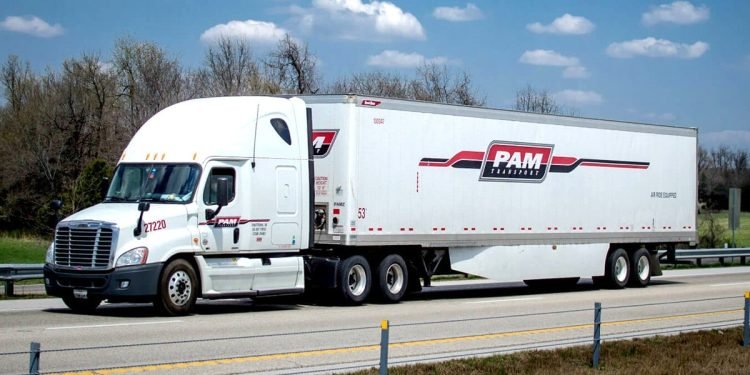The final leg of a delivery journey – the last mile – is crucial for customer satisfaction but can be a logistical headache. P.A.M. Transportation Group, a leading provider of transportation and logistics services, recently announced a pilot program for drone delivery. This initiative signifies the company’s exploration of innovative solutions to potentially revolutionize last-mile delivery within the trucking industry.
The Last-Mile Challenge in Urban Areas:
Delivering goods within crowded cities presents unique challenges:
- Traffic Congestion: Delivery trucks can get stuck in traffic jams, leading to delays and frustrated customers.
- Limited Parking: Finding parking space for delivery vehicles in urban areas can be challenging and time-consuming.
- Environmental Concerns: Delivery trucks contribute to air and noise pollution in city centers.
P.A.M. Takes Flight with Drone Delivery:
P.A.M. Transportation Group’s drone delivery pilot program explores an alternative approach:
- Efficient Last-Mile Delivery: Drones can potentially navigate traffic congestion and deliver goods directly to customers in urban areas faster than traditional methods.
- Reduced Emissions: Electric drones can offer a more environmentally friendly solution compared to conventional delivery vehicles.
- Enhanced Customer Convenience: Faster delivery times and potentially more flexible delivery options could improve customer satisfaction.
Benefits for Businesses, Customers, and the Environment:
The successful implementation of drone delivery by P.A.M. could offer several advantages:
- Improved Delivery Efficiency: Drones could potentially expedite deliveries, especially within congested urban areas.
- Increased Customer Satisfaction: Faster delivery times and potentially more convenient delivery options can benefit customers.
- A More Sustainable Delivery Solution: Electric drones could contribute to reducing emissions within the delivery sector.
Challenges and Considerations of Drone Delivery:
Despite the potential benefits, challenges remain for large-scale adoption of drone delivery:
- Regulation and Airspace Management: Ensuring safe integration of drones into existing airspace requires clear regulations and air traffic management systems.
- Payload Limitations: Current drone technology might limit the weight and size of packages suitable for drone delivery.
- Weather Dependence: Drone operations may be impacted by adverse weather conditions.
A Pioneering Move Towards Innovation:
P.A.M. Transportation Group’s drone delivery pilot program signifies a pioneering step within the trucking industry:
- Leading by Example: P.A.M. sets a positive precedent, encouraging other companies to explore drone technology for last-mile delivery.
- Investing in the Future: This initiative positions P.A.M. at the forefront of innovation for urban delivery solutions.
- A More Efficient and Sustainable Delivery Ecosystem: Drones, if successfully integrated, could create a more efficient and environmentally friendly last-mile delivery landscape.























